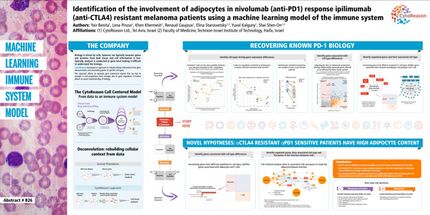Positive TB-402 (Anti-Factor VIII Antibody) Phase II Data Published in Journal of Thrombosis and Haemostasis
ThromboGenics NV and co-development partner BioInvent International announce today that the positive TB-402 (Anti-Factor VIII) Phase II trial results, evaluating the product’s efficacy and safety for the prevention of venous thromboembolism (VTE) after orthopaedic surgery, have been published in the Journal of Thrombosis and Haemostasis.
A paper entitled “Single Intravenous Administration of TB-402 for the Prophylaxis of Venous Thromboembolism after Total Knee Replacement: A Dose-Escalating, Randomised, Controlled Trial” has been published in JTH. This publication covers a recently completed dose finding Phase II trial with TB-402, with the objective of evaluating the efficacy and safety of three dose levels of single intravenous injection of TB-402 for preventing VTE after total knee surgery. The trial compared TB-402 with enoxaparin (Lovenox, sanofi-aventis), the standard treatment to prevent VTE in this setting.
The study showed that TB-402 was associated with a lower rate of VTE compared with enoxaparin. Pooled results of the TB-402 groups (0.3 mg/kg, 0.6 mg/kg and 1.2 mg/kg) showed a 22% incidence of total VTE compared with 39% for enoxaparin. In addition, TB-402 was generally well tolerated and demonstrated comparable safety to enoxaparin.
The results outlined in the article highlight that a single dose of TB-402 has the potential to improve preventive treatment of VTE after orthopaedic surgery by providing a stable, long-acting antithrombotic effect. The single dose administration may overcome poor patient compliance to therapy, one of the main causes of VTE in the real world. Furthermore, TB-402’s novel mode of action could overcome the frequent monitoring and dose adjustment requirements associated with many current anticoagulant treatments.
Organizations
Other news from the department research and development

Get the life science industry in your inbox
By submitting this form you agree that LUMITOS AG will send you the newsletter(s) selected above by email. Your data will not be passed on to third parties. Your data will be stored and processed in accordance with our data protection regulations. LUMITOS may contact you by email for the purpose of advertising or market and opinion surveys. You can revoke your consent at any time without giving reasons to LUMITOS AG, Ernst-Augustin-Str. 2, 12489 Berlin, Germany or by e-mail at revoke@lumitos.com with effect for the future. In addition, each email contains a link to unsubscribe from the corresponding newsletter.





















































